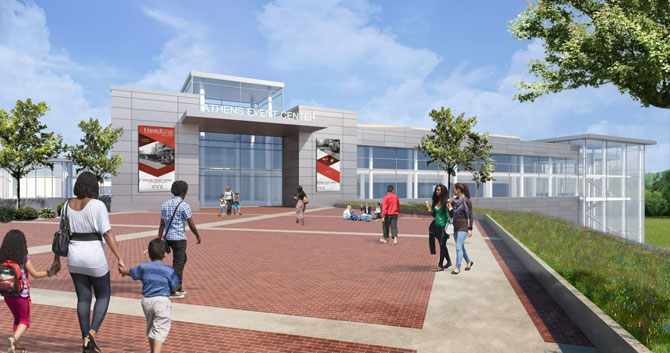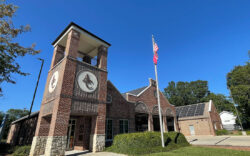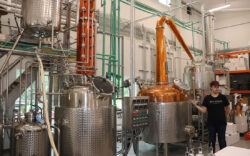The ACC Commission approved a 37-page agreement with the Classic Center Authority regarding several downtown development projects, including a 5,500-seat arena, at a special called session on Feb. 18. The vote was originally scheduled for Feb. 4, but commissioners delayed it to to ensure that their expectations regarding living wages and renewable energy would be met.
The minimum wage for workers employed on these properties—including the arena, a senior living center and a new hotel adjacent to the Classic Center—will be tied to the M.I.T. living wage calculator, which pegs the local living wage for a single adult at $11.56 an hour. The commission made several other changes to the agreement as well: They clarified that any revenues from future increases in the hotel-motel tax would not go to the Classic Center Authority automatically, withdrew a provision allowing the arena to ignore the existing signage ordinance (at least without further approval), and required the authority to adhere to an inclusive non-discrimination clause.
The ACC Office of Sustainability made contributions to the document as well. Sustainability Officer Andrew Saunders made several suggestions for how these development projects could be made more environmentally friendly and urged that at least 25% of the arena’s energy come from renewable sources. However, Michael Songster, a spokesperson for the renewable energy advocacy group 100% Athens, objected to Saunder’s suggestions, saying the 25% target was insufficient. New projects, in the group’s opinion, should emit as close to net zero carbon as possible so that the local government will have a better chance of meeting its self-imposed 100% renewable energy target by 2035.
The agreement had other critics as well, including Commissioner Melissa Link. “This is a huge project,” she said. “This is multiple buildings, basically remaking the entire eastern portion of downtown.” Link moved to delay the agreement even further, this time asking for a month-long public input process to help shape the final draft. Commissioner Mariah Parker seconded her proposal, but the agreement eventually passed 7-2 without further changes.
Commissioners also discussed increasing the budget of the newly-created Animal Services department by about $100,000. The extra money would go towards overtime costs, animal care maintenance, data processing and medical services for the animals, including vaccinations. The extra overtime has become necessary due to a recent resignation, persistently inadequate staffing levels and low volunteer morale. With “kitten season” expected a bit earlier this year due to the warm winter, some animal welfare advocates fear a repeat of the euthanizations seen over the past two years. On the plus side, Animal Services has recently developed a five-year strategic plan in coordination with community stakeholders that promises eventually to guide the agency past its time of troubles.
Commissioners are expected to authorize the additional spending for Animal Services at their next voting meeting on March 3.
Like what you just read? Support Flagpole by making a donation today. Every dollar you give helps fund our ongoing mission to provide Athens with quality, independent journalism.










